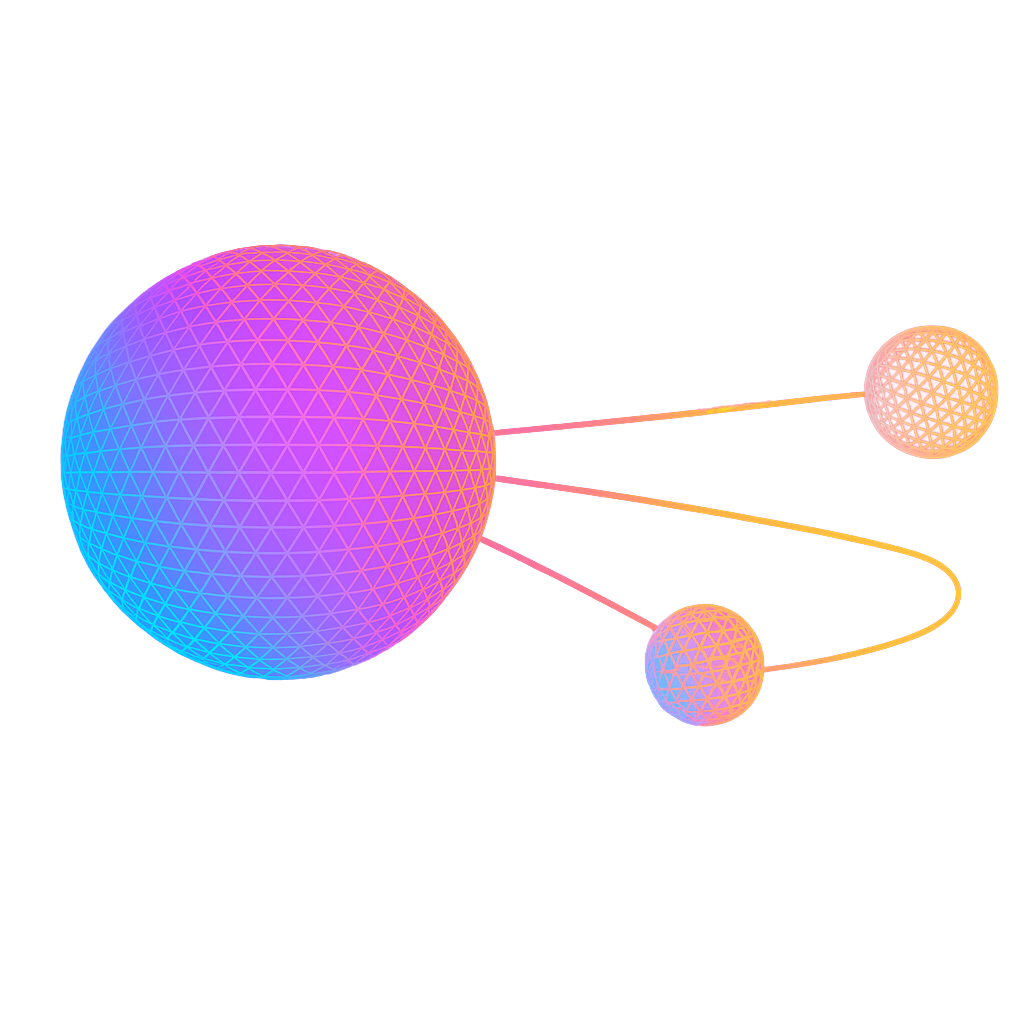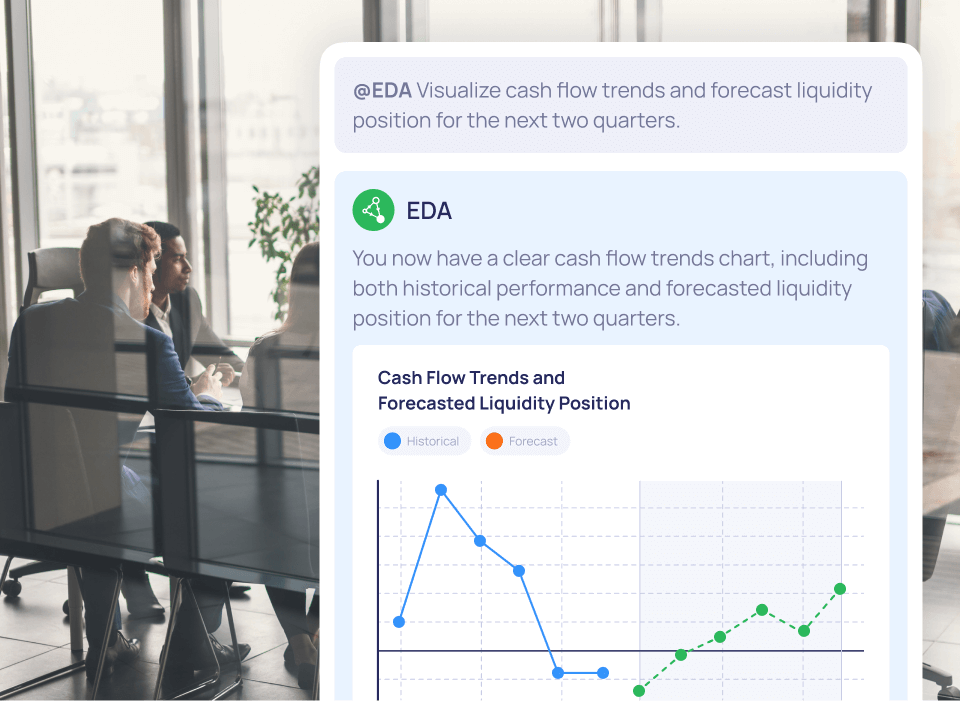Causal Reasoning Lab
Learn how the causaLens Digital Workers utilize our world-class causal tools and technology.

Why Causal Reasoning?
Correlation misleads; AI agents grounded in causal reasoning are essential for many high-stakes use cases & regulated industries where black-box, traditional modelling is not enough.
Only causaLens’ AI Agents can tap into our world-class causal tools, from causal effect estimation to structural causal modelling
Why this matters:
- AI agents are guardrailed to act & make decisions based on cause-effect relationships and causal models
- Discover the true causal drivers of your metrics/KPIs
- Identify the true root causes of inefficiencies or faults
- Transparent Logic: Utilising causal graphs enables clear ‘what-if’ explorations that earn stakeholder trust.
- Action-ready Insights: Automated interventions you can take action on immediately, grounded in cause-and-effect.


Our Best-in-class Causal AI Toolkit
All of our AI Agents have access to our best-in-class Causal AI toolkit, so they can deliver insights 10x faster and ground them in causal reasoning.
Leverage 15+ causal discovery tools to build causal graphs & causal models
Interview with Judea Pearl: The Causal Godfather
Darko Matovski, founding CEO at causaLens, sits down the Causal Godfather Judea Pearl in a fireside chat to discuss all things Deep Learning, Causal AI, AGI, and more.
Judea Pearl is widely regarded as the 'Godfather of causality.'
Developed the theory of causal and counterfactual inference based on structural models
Developed Bayesian Networks
Author of "The Book of Why" & Turing Award Winner
Interview with Guido Imbens: Nobel Prize Laurette
In this wide-ranging conversation, Nobel Prize-winning economist Guido Imbens reflects on the future of data science, AI agents, and causal reasoning. From the challenges of applying causality in real-world workflows to the role of human judgment in increasingly automated systems, Guido shares timely perspectives on how to make data science more rigorous, trustworthy, and impactful.
Professor Imbens is a Nobel Laurette Winner for Economic Sciences
Research topics in which he is interested include: causality, program evaluation, identification, Bayesian methods, semi-parametric methods, instrumental variables.
Co-Authored "Causal Inference for Statistics, Social, and Biomedical Sciences: An Introduction"
Our Research Papers
Mayo Clinic x causaLens: Towards Causal Analysis of Genetic Factors for Colorectal Cancer
Mayo Clinic and causaLens researchers leveraged Causal AI techniques and causal analysis to discover causal drivers of Colorectal Cancer.
Data Generating Process to Evaluate Causal Discovery Techniques for Time Series Data
causaLens’ NeurIPS 2020 paper sets out a framework for benchmarking causal discovery techniques time series data.
Domain Knowledge in A*-Based Causal Discovery
In this work, we focus on efficiently integrating several types of domain knowledge into A*-based causal discovery.
Unsuitability of NOTEARS for Causal Graph Discovery
causaLens’ Marcus Kaiser and Maksim Sipos show how one such algorithm, NOTEARS, is not suitable for identifying truly causal relationships from data.
An Overview of the Methodologies of Causal Discovery
Causal AI autonomously discovers causes in observational data, while also boosting human intuition and experimentation.
Equality of Effort via Algorithmic Recourse
This work, presented at the NeurIPS 2022 workshop Algorithmic Fairness through the Lens of Causality and Privacy, extends the existing definition of equality of effort and presents an algorithm for its assessment via algorithmic recourse, and validates this approach both on synthetic data and on the German credit dataset.
Causal Analysis of the TOPCAT Trial: Spironolactone for Preserved Cardiac Function Heart Failure
This paper, presented at NeurIPS 2022 workshop Causal Machine Learning for Real-World Impact, shows that causal discovery allows us to understand the causal pathways of the main outcomes of the TOPCAT trial, by deriving a causal diagram that provides insight into the regional transportability of the trial results.
A Causal Analysis of Harm
In this paper, published and presented at NeurIPS 2022, we provide a formal definition of harm that we believe deals with all the concerns that have been raised, seems to match our intuitions well, and connects closely to work on decision theory and utility.
On Testing for Discrimination Using Causal Models
causaLens’ own Hana Chockler in collaboration with Cornell’s Joe Halpern set out novel causal methods for detecting discrimination. This includes an analysis of the computational complexity of deciding fairness, and a practical regulatory framework for determining disparate impact.
Explanations for Occluded Images
The paper, published in collaboration with researchers from Amazon Science, leverages causal analysis to produce more reliable explanations of image classifiers.
Ranking Policy Decisions
causaLens’ NeurIPS paper introduces a novel method based on root cause analysis to rank states of the environment of a given reinforcement learning policy according to the importance of decisions made in those states. The ranking is used to explain RL policies and to create new, simpler policies by pruning the lower-ranked decisions.
LLMs & Causal AI; Synergies & Opportunities
How causal AI can work with LLMs to deliver even more value to your business.
Causal-Enabled Digital Workers
Ready to generate insights 10x faster, ground them in causal reasoning, and automate your analytics workflows?